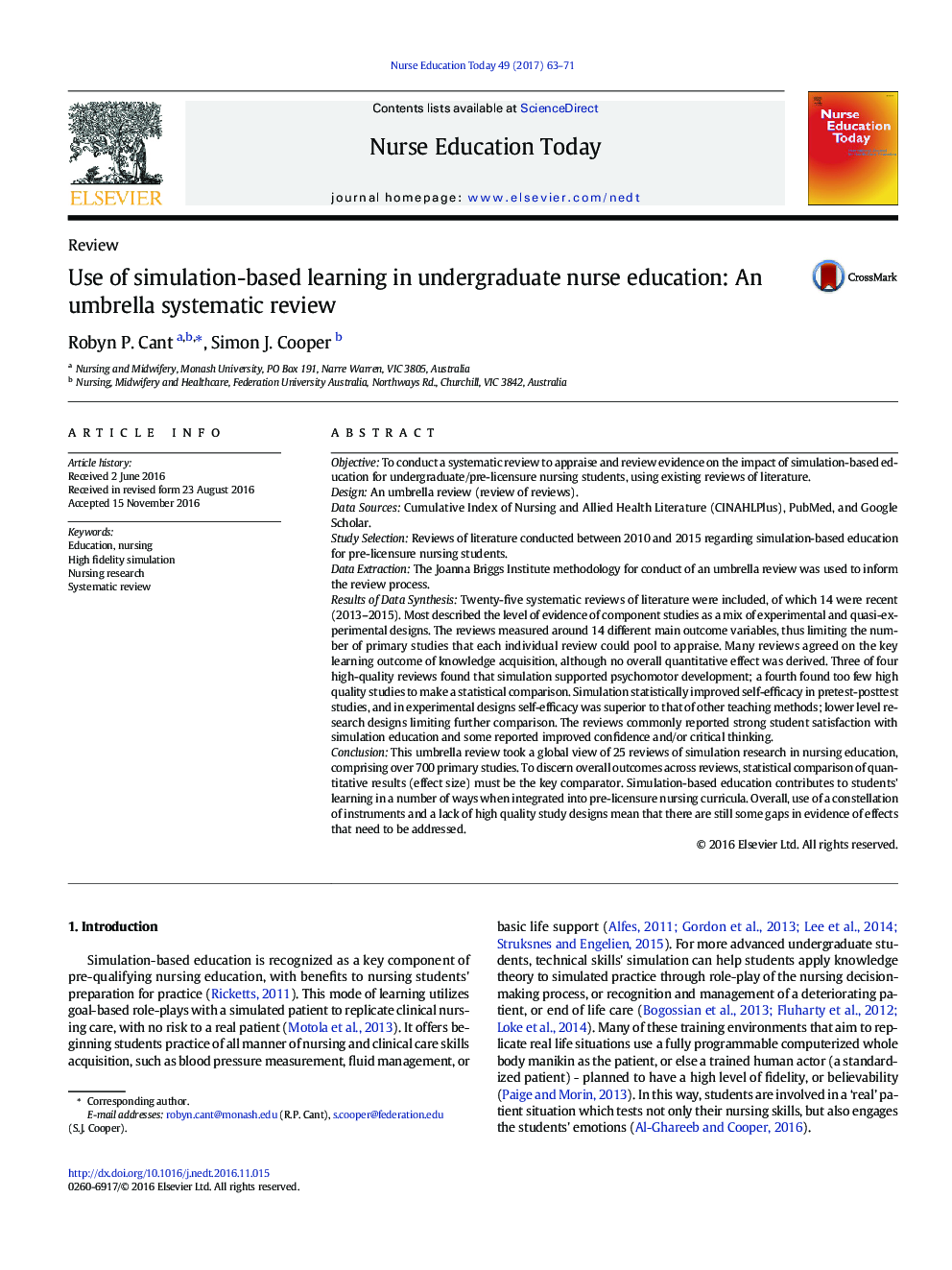| کد مقاله | کد نشریه | سال انتشار | مقاله انگلیسی | نسخه تمام متن |
|---|---|---|---|---|
| 4940838 | 1436544 | 2017 | 9 صفحه PDF | دانلود رایگان |
- Simulation-based education is common in prelicensure nursing education.
- Reviews show that simulation experiences can improve nursing students' knowledge.
- When integrated into curricula it contributes to students' learning in numerous ways.
- More high quality (experimental) research should be used to measure effects.
ObjectiveTo conduct a systematic review to appraise and review evidence on the impact of simulation-based education for undergraduate/pre-licensure nursing students, using existing reviews of literature.DesignAn umbrella review (review of reviews).Data SourcesCumulative Index of Nursing and Allied Health Literature (CINAHLPlus), PubMed, and Google Scholar.Study SelectionReviews of literature conducted between 2010 and 2015 regarding simulation-based education for pre-licensure nursing students.Data ExtractionThe Joanna Briggs Institute methodology for conduct of an umbrella review was used to inform the review process.Results of Data SynthesisTwenty-five systematic reviews of literature were included, of which 14 were recent (2013-2015). Most described the level of evidence of component studies as a mix of experimental and quasi-experimental designs. The reviews measured around 14 different main outcome variables, thus limiting the number of primary studies that each individual review could pool to appraise. Many reviews agreed on the key learning outcome of knowledge acquisition, although no overall quantitative effect was derived. Three of four high-quality reviews found that simulation supported psychomotor development; a fourth found too few high quality studies to make a statistical comparison. Simulation statistically improved self-efficacy in pretest-posttest studies, and in experimental designs self-efficacy was superior to that of other teaching methods; lower level research designs limiting further comparison. The reviews commonly reported strong student satisfaction with simulation education and some reported improved confidence and/or critical thinking.ConclusionThis umbrella review took a global view of 25 reviews of simulation research in nursing education, comprising over 700 primary studies. To discern overall outcomes across reviews, statistical comparison of quantitative results (effect size) must be the key comparator. Simulation-based education contributes to students' learning in a number of ways when integrated into pre-licensure nursing curricula. Overall, use of a constellation of instruments and a lack of high quality study designs mean that there are still some gaps in evidence of effects that need to be addressed.
Journal: Nurse Education Today - Volume 49, February 2017, Pages 63-71
